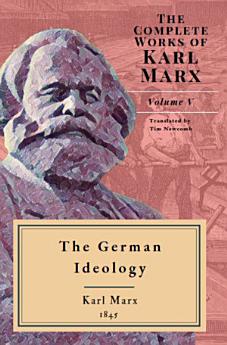The German Ideology
About this ebook
Written in 1845–1846 but unpublished during Marx and Engels' lifetimes, The German Ideology (Die deutsche Ideologie) was conceived as a comprehensive polemic against the dominant philosophical currents of post-Hegelian Germany, particularly those espoused by Bruno Bauer, Ludwig Feuerbach, and Max Stirner. Intended as a full theoretical break from the abstractions of German idealism, the manuscript was composed in a fragmentary, often repetitious manner and left abandoned when no publisher accepted it—later unearthed and printed in part in the 1930s. It was in these pages that Marx and Engels first articulated in clear and systematic form their theory of historical materialism, asserting that the mode of material production in any society shapes its institutions, culture, and consciousness.
The text rejects the idea that ideas or consciousness determine social life, arguing instead that it is social being—shaped by labor and economic organization—that gives rise to thought. It openly mocks the lofty metaphysical preoccupations of the Young Hegelians and positions them as trapped in a self-referential illusion, detached from the real conditions of existence. The book also includes a sharp critique of Stirner’s individualism and idealist egoism, casting it as another symptom of the German philosophical retreat from history and practice. Although the manuscript was never revised into a final form, its theoretical content introduced the decisive materialist standpoint that would underpin Marx’s later writings, marking the emergence of a philosophy not of contemplation but of transformation.
This modern Critical Reader’s Edition includes an illuminating afterword tracing Marx’s intellectual relationships with revolutionary thinkers and philosophers (including Hegel, Feuerbach, Engels, and Ricardo), containing unique research into his ideological development and economic-metaphysical theories, a comprehensive timeline of his life and works, a glossary of Marxist terminology, and a detailed index of all of Marx’s writings. This professional translation renders Marx’s dense, dialectical prose into modern language to preserve the original force and precision of the text. Combined with the scholarly amplifying material, this edition is an indispensable exploration of Marx’s classic works and his enduring Hegelian-Protestant influence in the political, religious, economic, and philosophical spheres.









